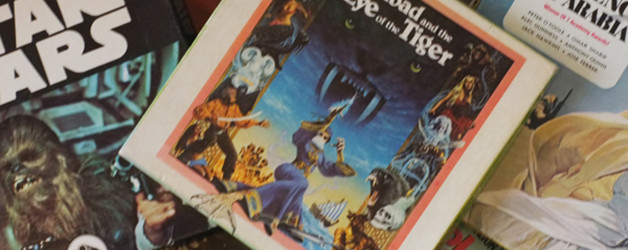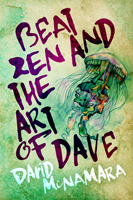T
Edward was a model paper plane perfectionist. He shaped long, pointed planes that flashed through the air like darts, wide flat-bellied planes that yawed and pitched like bombers. He invented ones that dove and reared up then crashed out like fighters. Others floated so high for so long they lanced the sky and shrunk into the distance like real jumbo jets that never returned. He even crafted ones that were more like birds than planes – wings and bellies gliding so low they tickled the bull grass like pelicans landing in the bay. And there were the creations you could never predict where they’d go with each throw – ducking left and right and swinging up and down like timorous finches.
Dunston told his father and he ordered the finest Origami paper from Japan over the internet. With his friends Russell and Aaron, they doggedly followed pictured instructions that came with paper. But their attempts fell rather then flew like flies passing through a discharge of insecticide.
Lieb was the classroom critic and orator. He could wring fortune out of failure and log roll triumph into humiliation. It came at a price. And his schedule stayed light because every day everyone’s attention turned to something new. Callum was a yo-yo perfectionist until Daryl brought his jar of marbles to school. After Hula Hoops were introduced Erin was crowned Queen, then Squareball courts were marked out with chalk and Aaron was coronated the King.
Justine, Freya and Jessica become a tripartite of skip rope perfectionists when the class was asked to participate in a Heart Foundation fundraiser. They skipped in tandem with one rope or spun two that burred like egg beaters and cracked like whips when they dusted the bitumen. They took turns dashing in, pronking and oscillating to the iambic rhythm of a schoolyard chant before ducking out the far side as if they’d rushed through a waterfall and not gotten wet.
Dunston told his father and he bought the ‘Ninja Strike Skip Rope; for Professionals Only.’ It had a black polymer cord connected to silver moulded grips with lighting stickers on the sides and an odometer on the right handle which scored the number of rotations. It didn’t help Dunston stick a double skip which Jessica, Aaron and Saul could do without screwing their face up in red and cheating by jumping off the raised embankment along the lower side of the playground.
Justine, Saul, Freya and Daryl were congratulated for the highest scores in the Skipathon. But Dunston’s father sponsored him fifty pounds for time completion rather than setting an amount against number of completed rotations. Dunston was awarded a gold badge with a heart etched on it that Dunston threw in his bag and forgot about.
Finn was Edward’s best friend in the world since grade two and assisted his airplane designs. Finn’s unfettered input often ended in failure but they were fanciful and fun to make and spurred Edward onto more advanced and adventurous designs. When they calculated a lustrous veneer would reduce resistance and maximise updraft Edward tore pages from his mums’ fashion magazines. When they determined a stiff framework was required Finn slunk into his dad’s old study, careful not to touch anything and lifted the expensive printing paper that had turned jaundice in the machine’s tray. When they hypothesised only the lightest structure would suffice Edward grabbed large sheets of newspaper after his parents folded them like blankets and finished their breakfasts with an expedient final gulp of cold coffee. Although after what happened, Edward noticed Finn didn’t talk as much anymore. And he didn’t come round as much to play.
The following day Dunston arrived at school with a radio controlled plane. The entire class “wooed’ at recess, watching it throttle through take-off and whine like a lawn cutter into the air. It rose high over the old pine tree and Edward’s elegant designs silently slicing the sky behind the noisy cavalcade were instantly ignored.
Dunston’s plane crashed snapping the wing on its third flight because Russell was wrestling him for control of the remote claiming Dunston promised to let him have a turn. Dunston denied this. But this too was forgotten as summer hit hard.
Straw and brick lizards emerged from under lose wooden skirting and cracks in the convent’s foundation by the communal bubbler and bike racks. The class was studying biology and Austin was an animal catching perfectionist. His burly legs kept his carriage upright and indomitable as he scooted methodically up and back along brick walls, over steps, and between crevices. He possessed a preternatural instinct to track poikilotherms and predict where hollows in the mortar joined and exited. His arms and hands were sinuous spring traps held outstretched to strike, always from behind and facing the sun.
When the other boys tried they lacked the technique and strategy. They hadn’t the patience to let a lizard fall drunk with sleep in the sun. They slapped cupped hands down onto brickwork with confidence, drew in their fingers like a net, and revealed empty palms like magicians mystified by their own trick.
Josephine was the classroom socialite. She was coat-racked a lesbian by the other girls in class, including her best friend Phoebe before they even knew what the word meant. She called them fascists but stopped short of classing them enemies. She concluded when she turned six life was too short to take people personally. And she started the rumour herself because she liked to control everything about herself including insults.
Josephine decided to grow up early and was phlegmatic to the frivolities of recess and lunch break and the shrieks and yelps that filled the still air. That is why she noticed Finn was too. Finn actually liked the ruction of the school yard. He wasn’t small or weak and because he wasn’t the best or worst at sport he enjoyed it. That wouldn’t wash with Josephine who felt sorry for him after what happened the same way she felt sorry for reading on the internet about a tragedy befalling her favourite Hollywood stars.
Finn’s reticence was owed to his discovery of motion film over the Easter Holiday. Not cinema pictures, DVD’s or downloads on the internet or Iplayer – real film, celluloid. He stumbled on an old 8mm projector in a plastic case like mum’s sewing machine while going through his dad’s old stuff. It was packed in a cardboard box that smelt like old books and vacuum dust. He guessed she meant him to find it because she didn’t hide in the places she kept his birthday and Christmas presents. When she came home from work and saw Finn set up the projector she smiled like she was lying, or hiding something. It was a smile he’d not seen before and confused him.
After dinner when it got dark she retrieved a shoe box of loose reels and boxed films from her bedroom. Finn was seized by the magic the moment the lounge room went dark and he heard the projector steadily clacking like an artificial heart with the lamp illuminating another world onto the white sheet his mum hung over the curtains.
The projector dragged film over sprockets, munched it through the gate and across the lamp at twenty-fifths of a second because Finn later discovered that is the speed the human eye processes images. It expelled the thread of fingernail images at the back of the machine and automatically wound onto a receiving reel. The constant whirr gave Finn the feeling of comfort or solace – he couldn’t quite decide but it was like wearing winter pyjamas on a cold night.
Finn’s mum told him he was the baby on the picnic rug, splashing in paddling pool, sitting distraught in front of a cake glowing with candles, zipping down their old driveway on a plastic yellow tricycle with orange wheels and green handlebars he could almost remember. He recognised his mum. She looked thinner and younger and urbane with longer hair and sunglasses like turtle shells. In a one shot she smoked while laughing freely and pushed camera away. The camera wobbled and Finn saw his dad leap in front of the picture and bound over to a pair of swings in a park where Finn sat in a rubber saddle like a tubby ball of flesh. His dad had long wickets of dark hair down the side of his ears. As he pushed Finn he goofed around like a kid, waving and making silly faces that Finn couldn’t remember. He was shocked to see how much of his dad, how much detail his memories forgot.
Finn’s mum quietly got up and went to toilet as the film continued to chomp through the projector. He heard his mum’s subdued sobs muffled by a hand over her closed mouth. He then heard the medicine cabinet open, pills rattling in a plastic bottle and the toilet flush.
Follow or Subscribe so you don’t miss The Amateur Perfectionist Projectionist: Part II








